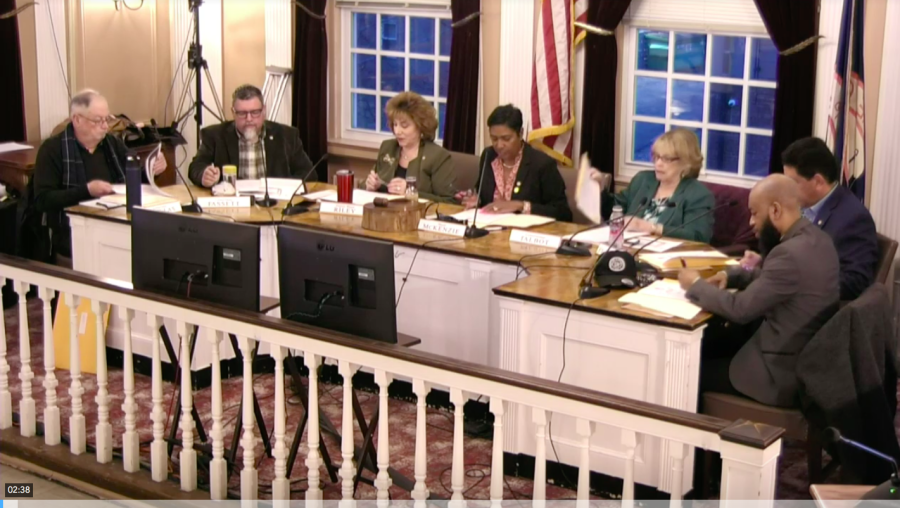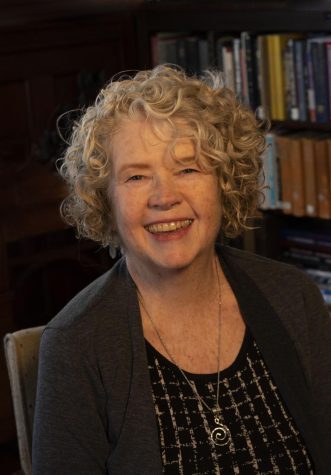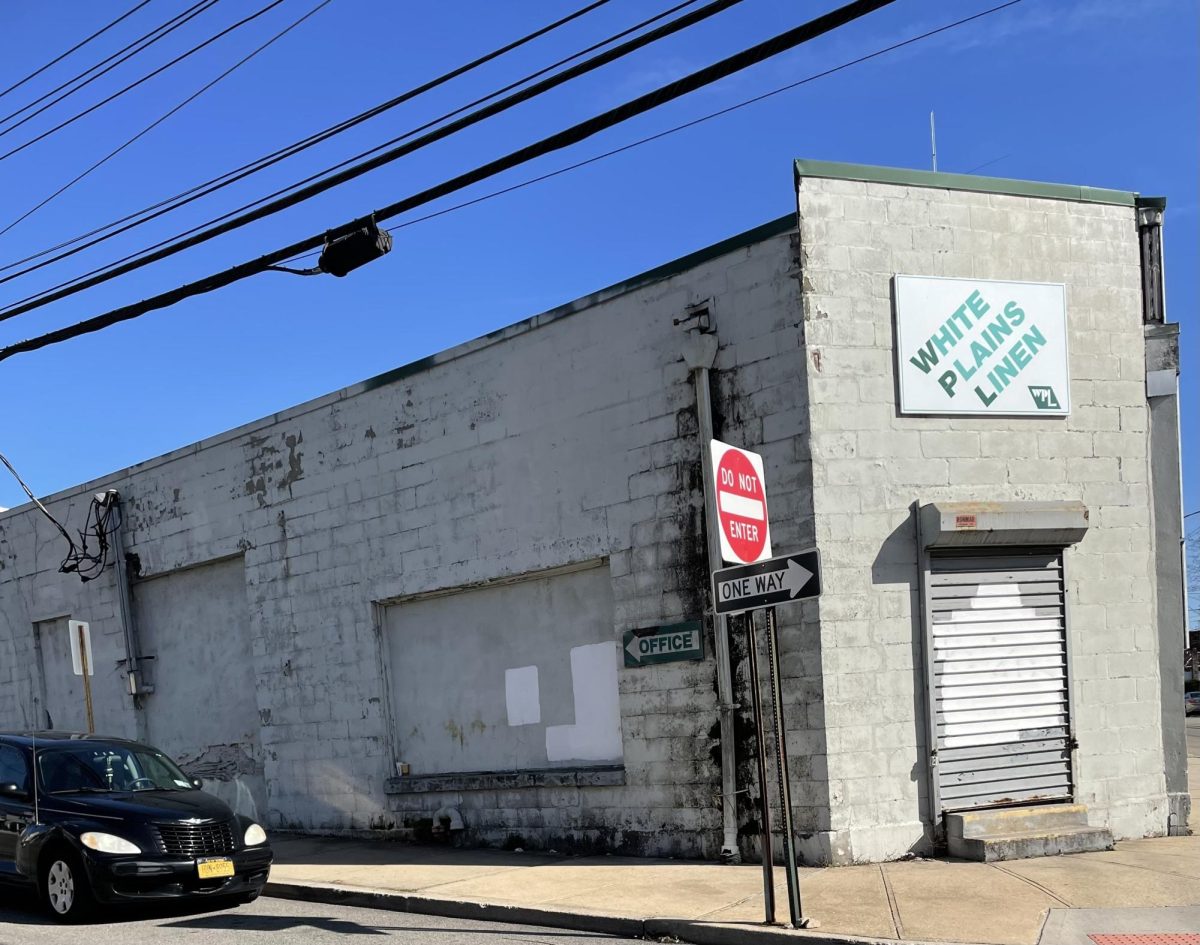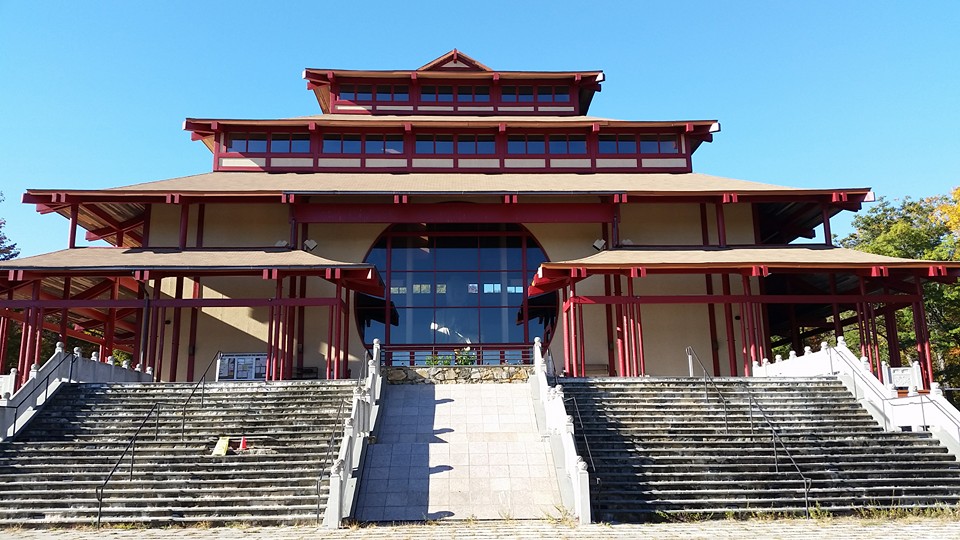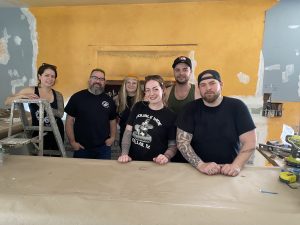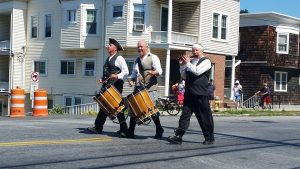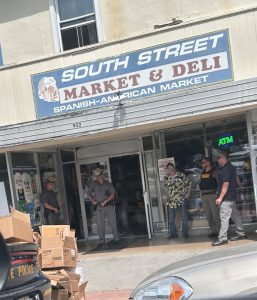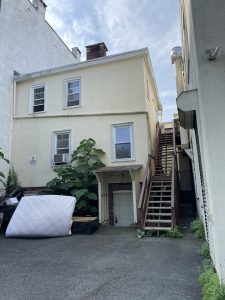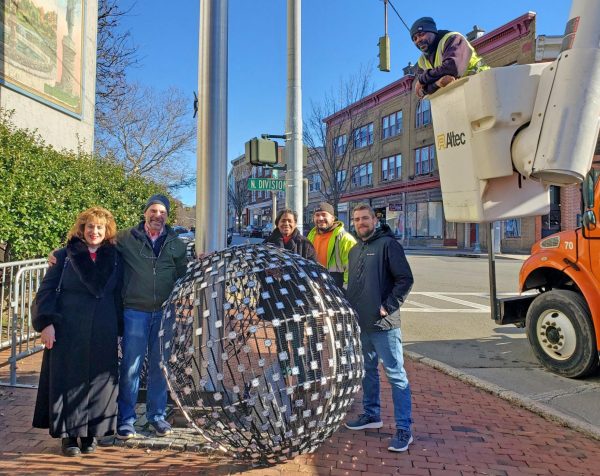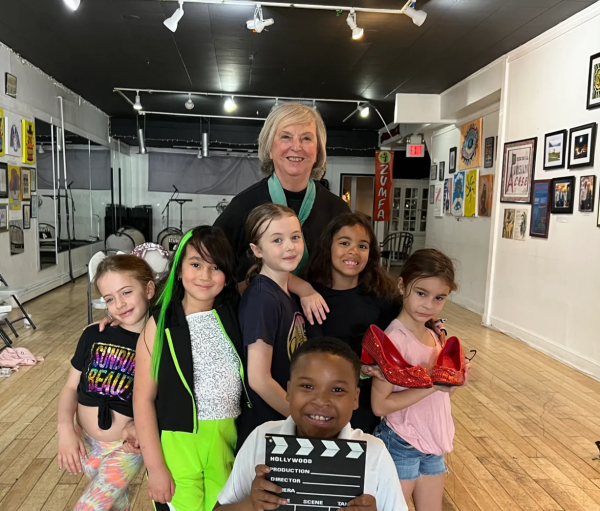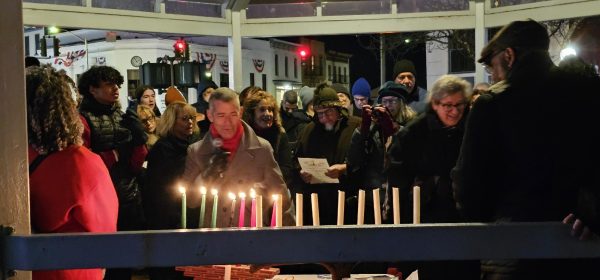Tempers flare at Common Council meeting
Passionate debate around Esther Street, Zoning Change and Soccer Field Vote
Peekskill’s Common Council from left, Dwight Douglas, Brian Fassett, Patricia Riley, Mayor Vivian McKenzie, Kathie Talbot, Ramon Fernandez, Rob Scott.
March 30, 2023
Although the two most controversial issues on the agenda at Monday’s Common Council meeting – a proposal to alter the status of the Esther Street pedestrian plaza, and a proposed zoning change – were not put up for votes, tensions ran high in the chamber as resentments surfaced over the two discussions, and a vote around funding for a soccer mini-pitch at Depew Park.
The simmering discontent that spilled into public involved Councilman Ramon Fernandez’ comments on social media earlier this week equating the protest of 200 African American youth in July 1967, to the lack of recreational facilities for the city’s current Hispanic youth.
During the hearing of citizens, Priscilla Augustin, president of Peekskill’s NAACP branch, spoke of the need to be mindful of how issues are addressed. “I felt it was offensive to compare what happened in July of ‘67 to the needs of soccer. These are rooted issues that hurt, and people are still trying to learn how to mend their hearts and heal with each other,” said Augustin.
“When things like this are put out in the community, it gives room to those who witness and suffer these insults to justice issues get more hurt, and no one is here to repair them. We are mindful in how we advocate for the needs of our community, especially for our youth. Let’s not hurt people along the way with how we present posts on social media. It’s very offensive and not everyone has someone they could speak to help them process it,” she explained.
Her comments led Fernandez to offer an apology that he didn’t intend to offend, but was speaking from his experiences as a father not being able to explain to his son why there weren’t places available for them in the city to play and practice soccer. Mayor Vivian McKenzie responded to Fernandez’ by telling him that what was offensive were the many items he overlooked regarding the July 1967 protest in regard to discrimination, and zeroing in on recreation wasn’t entirely accurate. “I would put an apology on the table and leave it at that and not try to clarify it,” she said.
The exchanges continued, including from some African American members of the audience, and African American Councilman Rob Scott, who suggested that what Fernandez was saying wasn’t really an apology because he was clarifying what he was saying. “We’re going to stop this conversation right now,” replied McKenzie. The back and forth prompted the mayor to say she was going to ask the city’s Human Relations Commission to get involved.
“This is truly a point of sensitivity,” McKenzie observed. “This is a discussion that needs to be had with the community, all parts of the community, and that is what the Human Relations Commission is for. I’m going to ask everyone to participate. We don’t need to be hurting each other’s feelings, we all live here and we have to learn to live with one another and respect one another, ” said McKenzie.
“That’s the key word, respect,” chimed in Scott, as McKenzie raised her voice to ask council members and the audience to listen to each other.
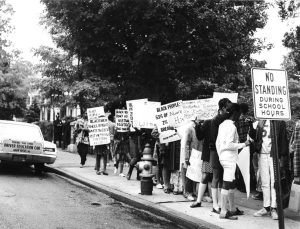
Fernandez was advocating for the city to spend $157,000 not allocated in a state grant to construct a mini-pitch soccer field as part of the new all-purpose field proposed for Depew Park. Various members of the community spoke of the need to include the mini-pitch as part of the city’s field renovations, funded by a state grant. Citizens cited the need for a place for the burgeoning population of Hispanic children to play and practice soccer. “We can’t be short sighted,” said Mary Foster of Hudson Avenue, about the need to add a mini-pitch at the time of the renovations. “The field at Depew is the only big, green, grassy field the city owns.”

The conversation about the soccer field took place moments after a team of 14 young people, mostly from Peekskill, came to the Council to inform them of their trip to Peekskill’s sister city Cuenca in Ecuador this week. The soccer team, Revolution, is participating in tournaments this week, coached by Peekskill resident Victor Vallejo. Last year a team from Cuenca traveled to Peekskill and were greeted by Common Council members.
Zoning Amendment and Esther Street
“New information” regarding a Zoning Text Amendment and a document from the original plan for Esther Street took the zoning and Esther Street items off the agenda at the beginning of the meeting.
The Resolution for a Zoning Text Amendment in the C-3 commercial zone to allow for extra building height was tabled when Deputy Mayor Patricia Riley said new information came to light on Monday. She was referencing a 2016 Feasibility Study conducted by the city in regard to the White Plains Linen property on Constant, Highland Avenues and North Division Street. Riley acknowledged Constant Avenue resident Leslie Lawler for bringing the study to the attention of the Council. Lawler said she discovered the report in the attic of her home, and wanted to show the council members that the neighborhood had been studied by residents and the city, and the conclusion was that the property could be developed without building double or triple the density of the buildings currently in place.
Lawler was the first person to speak during the comments from the public on agenda items. Technically, the zoning issue was no longer on the agenda, but Lawler presented her information in the three-minutes allotted to each citizen. A few minutes later James Guerriero, the developer who has presented a plan for his property at North Division and Howard Street, stood to comment, and was told the item was no longer on the agenda. He noted that Lawler had been allowed to speak on the zoning issue after the item had been removed from the agenda. Mayor McKenzie then allowed him to proceed. Guerriero said his goal was to work closely with the city on the property he had purchased during the past six months, in the hope of building a housing development.
The Esther Street resolution to install bollards for $30,000 (replacing the current concrete blocks) – which a few dozen people attended the meeting to comment on – was also tabled after a presentation by City Manager Matt Alexander. Alexander said he had been inundated with emails and calls regarding the proposal. Since the proposal was made at the March 20th council meeting, he had reviewed the original June 29, 2020 resolution creating a temporary closing plan for Esther Street. Brian Orsi, proprietor of Bucko! on Esther Street, had directed him to the diagram of the proposed street closure which was part of the passed resolution.
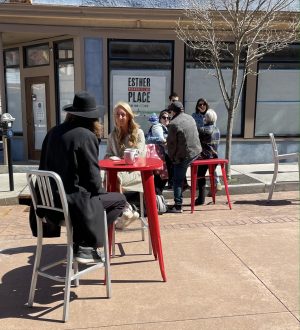
The cement barriers were not installed on South Division Street allowing for emergency vehicle and loading access. They are the ‘solution’ to the issue of the past few weeks around Esther Street.
“When I saw this drawing, with cleverly positioned blocks, in a slightly u shaped formation to allow for loading and emergency vehicles, I do think this is a very viable way to address this,” explained Alexander as he recommended they remove the resolution to purchase bollards from the agenda.
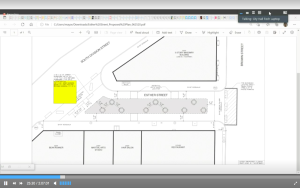
Councilman Dwight Douglas, who last week said he was surprised to hear a discussion about purchasing bollards, was “pleased we had so many community members engaged. It’s a positive to have so many people committed.” Councilwoman Katie Talbot suggested calling it Esther Place, “because it really is a place,” to applause from many of the residents filling the council chamber pews.



